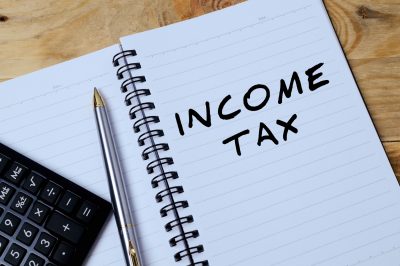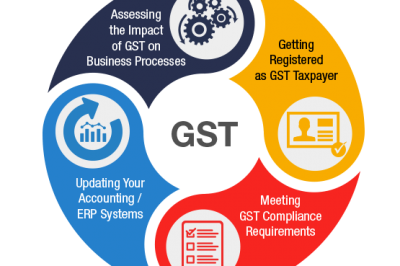TAXATION
Structuring your business affairs in a tax efficient manner, therefore, is the key to sustainable growth. Traditionally, smaller accountancy firms concentrated on providing compliance related services in the field of tax, accountancy and company laws leaving advisory services to big firms. We aim to fill this gap and provide advice at a price that small to medium sized business could afford. Whether working on individual, corporate, partnership, estate, trust or other plans and returns, our professionals help you make the most of your money through knowledgeable planning and expert advice.
INCOME TAX

Goods & Service Tax

The number of amendements in Income Tax Act is made every year. It is no wonder that many small business and individuals seek guidance when trying to meet the complex and arduous requirements of maintaining compliance during the tax filing season. AccuBooks endeavors to provide clarity, accuracy and planning strategy when working through these issues. We enjoy finding solutions to optimize our client’s taxable footprint and strongly believe prudent tax and financial planning can retain capital and pay for itself many times over. We not only assist you in ITR prepration, TDS Return filling but also in better tax planning and during Income tax assessment.
Goods & Service Tax (GST) is a comprehensive indirect tax levied on manufacture, sale and consumption of goods as well as services at the national level. It has replaced all indirect taxes levied on goods and services by the Central and State Governments. GST regime was implemented from 1st July 2017, and India has adopted the dual GST model in which both the Centre (through CGST & IGST) and States (SGST) & Union Territories (UTGST) levy taxes. We provide complete GST Solutions (Registration – Return Filling – Assessment) to our client along with tax planning advisery. We also provide trainning to the client’s personnal on the varrious aspect of GST.
PAN/TAN Registration

TDS Return Filling

Permanent Account Number (PAN) is a unique identification number assigned to Indians, mostly to those who pay tax. The PAN system of identification is a computer-based system that assigns unique identification number to every Indian tax paying entity. Through this method, all tax related information for a person is recorded against a single PAN number which acts as the primary key for storage of information. This is shared across the country and hence no two people on tax paying entities can have the same PAN.
Tax Deduction and Collection Number (TAN) is mandatory 10 digit alpha number required to be obtained by all persons who are responsible for Tax Deduction at Source (TDS) or Tax Collection at Source (TCS) on behalf of the Government. The person deducting the tax at source is required to deposit the tax deducted to the credit of Central Government – quoting the TAN number.
Tax deducted at source (TDS) ensures that the Government’s collection of tax is proponed and the responsibility for paying tax is diversified. The person deducting the tax at source is required to deposit the tax deducted to the credit of Central Government – quoting the TAN number. Individuals who are salaried are not required to obtain TAN or deduct tax at source. However, a proprietorship business and other entities (i.e., Private Limited Company, LLP, etc.,) must deduct tax at source while making certain payment like salary, payments to contractor or sub-contractors, payment of rent exceeding Rs.1,80,000 per year, etc.
Those entities have TAN Registration must then file TDS returns. TDS returns are due quarterly. AccuBooks help you to compute your TDS payments and e file the TDS return and keep you in compliance with TDS regulations.
